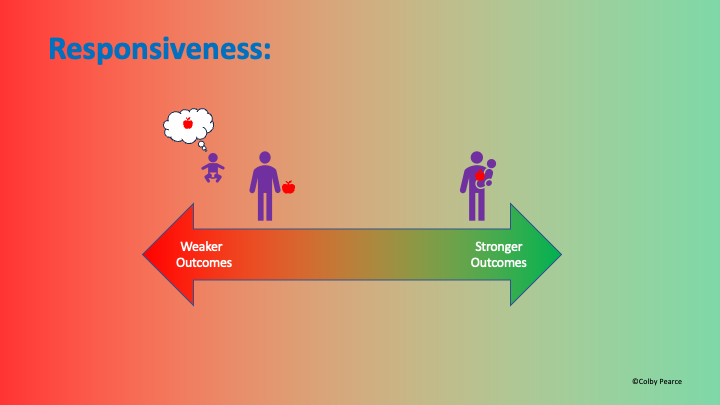
R: Responsiveness
In conventional, nurturing care environments infants feel understood, in the words, actions and expressed emotions of their primary caregivers. Often referred to as sensitive responsiveness, these aspects of caregiving and relating support healthy attachment, optimal states of central nervous system activation, or arousal, and functional learning about the accessibility and responsiveness of adults in a caregiving role. I refer to these aspects of the developing child as the Triple-A Model, which I developed to assist with understanding of the impact of early trauma on the developing child.
Early trauma has an adverse impact on attachment formation, arousal modulation, and what is learnt about accessibility to needs provision which, in turn, effects the way the developing child approaches life and relationships. Children who experienced relational trauma during infancy maintain negative beliefs about themselves, others, and their world (Attachment Representations); are prone to hyper-arousal which, in combination with their negativistic appraisals of life and relationships, leaves them chronically anxious; and prone to coercively controlling and demonstrative behaviour to communicate about their experience and manage access to needs provision.
Interventions that begin to address the impacts of early trauma enrich the child’s experience of sensitive responsiveness; in our words, our deeds, and our expressed emotions.
Firstly, with respect to our words, we need to verbalise about their thoughts, feelings, needs, and intentions so that, in time, they will have the words and the trust that in using them, they will be heard and responded to sensitively and accurately. I will talk more about this at a separate presentation in two weeks’ time. We also need to anticipate their reasonable requests and needs and respond to them proactively. In doing so, we will support experiences that promote trust in others, a healthy sense of self-worth, and the consideration of the experience of others that is vital to healthy relationships and social competency.
Click here to enter the next page in this module.
Click here to purchase a PDF Handbook for this module.
